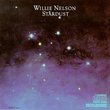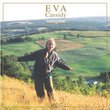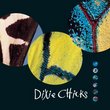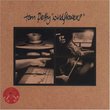| All Artists: Gene Autry Title: Essential (1933-1946) Members Wishing: 0 Total Copies: 0 Label: Sony Original Release Date: 10/13/1992 Release Date: 10/13/1992 Genres: Country, Pop Styles: Cowboy, Classic Country Number of Discs: 1 SwapaCD Credits: 1 UPC: 074644895728 |
Search - Gene Autry :: Essential (1933-1946)
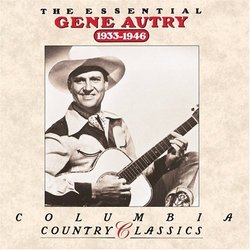 | Gene Autry Essential (1933-1946) Genres: Country, Pop
More vividly than anyone else, Gene Autry captured the romantic paradox of the Old West: a wide-open independence and excitement laced with periods of deep loneliness and depression. "Back in the Saddle Again," "Deep in th... more » |
Larger Image |
CD DetailsSynopsis
Amazon.com essential recording More vividly than anyone else, Gene Autry captured the romantic paradox of the Old West: a wide-open independence and excitement laced with periods of deep loneliness and depression. "Back in the Saddle Again," "Deep in the Heart of Texas," and "Jingle, Jangle, Jingle" are jubilant celebrations of life on the trail. "Tumblin' Tumbleweeds" and "Take Me Back to My Boots and Saddle" are plaintive reflections about the lure of the frontier. "Mexicali Rose" and "The Call of the Canyon" long for the women he's left behind. "The Last Round-Up" offers the somber words of a cowboy on his deathbed. This wonderful 18-song collection trots from Autry's early Jimmie Rodgers-inspired yodels to his warm-voiced pop ballads, and serves as a definitive single-CD overview of the ultimate "Singing Cowboy." --Marc Greilsamer Similar CDsSimilarly Requested CDs
|
CD ReviewsA Must of Country Music Lovers! PATRICIA T. ALMDALE | 07/30/1999 (5 out of 5 stars) "All the 18 works selected are the classics of Mr. Autry.The melody of the first song,"the Yellow Rose of Texas" is quite different form the popular version we heard today.However, the interpretation of Gene is so emotional and with strong personal style.None can claim as a fan of Gene Autry without listening to "Back in the Saddle Again"-the milestone of Gene's Career, and also one of the most important country songs in the States. Besides these 2 Classics, the most impressive works, in my opinion, are "Blueberry Hill", a superb version even Fats Domino's No.1 Hit cover version in 1956 can't be compared with, "Call of the Canyon",the beautiful & emotional melody always give me me a fresh feeling even it's an oldie in nearly 60 years ago,"You are my Sunshine" ,"It Make No Difference Now","Jingle,Jangle,Jingle" and "Red River Velley" . You will find that the music & singing style of the Singing Cowboy varies from the 30's to 40's with creation & improvement so you will find no monotony in this disc.The only regret is that "Have I Told You Lately that I Love You",the most influential love song of Gene,I think, haven't been selected in this disc. In conclution, this CD is a must of the fans of Gene Autry,and also of country music lovers." America's Favorite PATRICIA T. ALMDALE | AULANDER, NC USA | 06/22/2002 (5 out of 5 stars) "As America's Favorite Singing Cowboy, Gene Autry was without a doubt one of the most versatil entertainers in the history of radio, movies and tv. This CD is a prime example of just how varied his music style could be. The majority of the songs on this album were eventually sung by him in the hit "B" western movies that he was so well know for. If you happen to chance across a Autry western and fall in love with the melodious voice and the wonderful personality that was Gene Autry, then this is an excellent CD to start out with. Many people are surprise to learn that Gene Autry recorded the ever popular "Blueberry Hill". For a romantic at heart the songs "Amapola", "Maria Elena","Mexicali Rose" and of course one of my favorites "Call Of The Canyon" are recommended, but if you also like the songs that take you back to a less hectic time in life when the Cowboy with the white hat was "Always" the Hero, then check out the ever popular "Back In The Saddle" and "I've got Spurs That Jingle, Jangle, Jingle". As a Gene Autry Fan and Collector, take it from me, if you are a fan old or new, this is a must have for your collection." The definitive collection PATRICIA T. ALMDALE | 02/11/2000 (5 out of 5 stars) "Having sampled most of the Gene Autry releases over the years, I have found this to be the definitive disc for either first-time buyers or die-hard aficionados of cowboy music by this American treasure. While this disc contains a few "pop" pieces such as Blueberry Hill (I had always thought that Fats Domino was the first to record it), even these are performed with a western flair. In contrast, many of the other Gene Autry collections include a number of tracks apparently intended to showcase the breadth of his style rather than focusing on the heart of his repertoire--cowboy songs. If this is your first Gene Autry disc, you'll probably want more. I suggest volume 3 of Songs of the West (also available from amazon.com), which is a nice mix of songs by Gene and early recordings by Roy Rogers with the Sons of the Pioneers."
|

 Track Listings (18) - Disc #1
Track Listings (18) - Disc #1

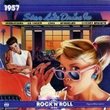

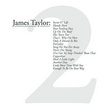
![The Ink Spots - The Greatest Hits [MCA]](https://nationalbookswap.com/cd//m/61/4061/24061.jpg)

